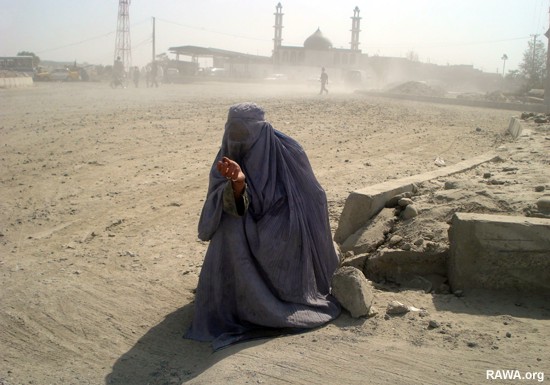By Haroon Siddiqui
There's a lot we know about Afghanistan and a lot more we don't. An expert who knows much more than most of us – whose prescient insights I have benefited from for a decade and whom the John Manley commission consulted last year – says Afghanistan will get worse in the coming months.
Last week's dramatic jailbreak in Kandahar by the Taliban – an embarrassment for which the Canadians blamed the Afghans who blamed the Pakistanis – is a symptom of a bigger problem. The insurgency is getting stronger, notwithstanding steady official assurances that the Taliban have "lost momentum," are "desperate," "worn out," "on the run" and being "hunted down."
Ahmed Rashid, a veteran journalist based in Lahore, is an authority on the region and author of the best-seller Taliban (2001), which, within days of 9/11, became a must-read for world leaders, military commanders and journalists. He now has a new book, Descent into Chaos.
It says that Afghanistan constitutes a worse crisis than Iraq. Not just because of the escalating violence (8,000 Afghans killed last year, and 1,800 so far this year; more NATO troops killed in May in Afghanistan than in Iraq) or the opium that finances the insurgency. Or the ineffective Hamid Karzai who presides over corruption, warlords and drug barons. Or the frightening rise of Taliban sanctuaries and sympathizers across the border in Pakistan.

RAWA Photo: Unprecedented Poverty in Afghanistan hits 80% of the population
Afghanistan affects the entire region. The turmoil in Pakistan is well-known. Problems are also brewing in the five Central Asian states, especially Uzbekistan, where a repressive dictatorship is battling (and feeding) a rising Islamic militancy, whose tentacles reach back into Afghanistan and Pakistan. "Central Asia is the new frontier for Al Qaeda."
Rashid, on a book tour of North America, spoke to me by phone on Tuesday from Seattle.
He expects a major Taliban offensive, especially but not exclusively because of support from across the border in Pakistan.
"NATO nations remain divided and weak in their commitment. The American president is a lame duck. The next president won't get around to dealing with Afghanistan until the middle of next year.
"There's a vacuum. The Taliban are going to be taking full strategic advantage in the coming months.
"So long as there are Taliban sanctuaries in Pakistan, they will remain a potent military force. The Taliban are expanding in Pakistan much faster than anyone could've imagined."
There's the porous border. And there's the Pakistan military's "double game" of cracking down on militants while keeping some as a proxy for influence in Afghanistan.
However, "Pakistan is not the only one playing a double game. So is the U.S. All it cared about was to get Al Qaeda. It didn't (initially) care about the Taliban."
It nearly abandoned Afghanistan after toppling the Taliban in 2001, making the same mistake it had once before after helping to end the Soviet occupation in 1989, leaving a vacuum in which rose the Taliban, a failed state and the perpetrators of 9/11.
"President [Hamid] Karzai got 40,000 votes from Kapisa Province, but now he wouldn't get five," said Abdul Hadi Safi.
What to do?
"You cannot deal with one country without dealing with the region.
"You cannot deal with Afghanistan without dealing with Pakistan.
"You cannot deal with Pakistan without dealing with India, without making India more amenable to dealing with Pakistani insecurities by dealing with the Kashmir issue or the Indian interference and influence in Afghanistan. The Pakistan military remains fearful of India's involvement in Afghanistan. They fear that Karzai may fall and they need their own proxies in Afghanistan (just as India and Iran have theirs) ...
"You cannot deal with the Iranian role in Afghanistan without dealing with the Iranian nuclear issue."
There is no military solution – not in Afghanistan, not in Pakistan and not in Iran.
"You need a multilateral diplomatic push on several fronts, all going on at the same time, along with a push for democracy, human rights and economic development throughout the region."
Rashid had sounded the alarm bells on Afghanistan long before 9/11 but few listened. One hopes the world heeds him now, well before making many more mistakes.



